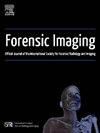Virtual anthropology is an ever-growing sub-field within forensic anthropology that is being applied across a variety of forensic anthropological research areas (Franklin et al, 2016). However, no previous studies have investigated the impact of participant confidence levels in analysing 3D virtual skeletal models. This study explores the feasibility of estimating sex and age from 3D virtual skull and os coxa models, aiming to investigate the feasibility of moving the field of forensic anthropology into virtual lab spaces. A total of 71 participants completed an online survey requiring analysis of published virtual 3D skeletal models. Participants were asked to rate their confidence in the methodology and overall sex/age estimation, as well as preference for assessment method for each skeletal model. Statistical Analysis revealed that level of experience in analysing dry bones was found to not be associated with higher confidence in analysing 3D virtual remains (p=0.360 for sex of skull; p=0.494 for sex of os coxa; p=0.845 for age of os coxa). Confidence ratings for students in analysing skeletal remains in person did not predict perceived difficulty of analysing 3D virtual skeletal models (p=0.717 for sex of skull; p=0.579 for sex of os coxa; p=0.733 for age of os coxa). Prior 3D virtual experience did make a difference in confidence levels in the estimation of skull-sex and os coxa-age models (p=003 and p=0.001). Yet, prior 3D experience did not impact confidence levels with os coxa-sex (p=0.093). To provide insight into the results, the social cognitive concept of the ‘self-efficacy’ theory is discussed.


